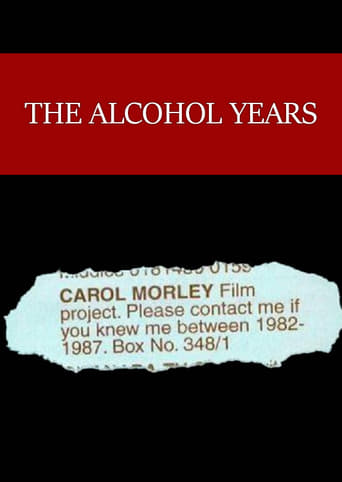



What makes it different from others?
Strong and Moving!
While it doesn't offer any answers, it both thrills and makes you think.
View MoreIt's the kind of movie you'll want to see a second time with someone who hasn't seen it yet, to remember what it was like to watch it for the first time.
View MoreCarol Morley of Manchester, England, with unabashed narcissism filmed people talking about her youth. She was blond, slept around, drank too much, had wild friends and big boobs and might even be charismatic. Fascinating. Movie has parental guidance warnings but actually it could let teens live the scene vicariously, from the end viewpoint, so they can do something different with their youth. Morley herself didn't have much parental guidance. Her father killed himself and wasn't around to have any input. She was a wild girl and now teaches film making. She pulled it together.There are friends from my youth that I would love to watch a multi-angled analysis of so I don't have any complaints about the concept of the film. A drunk girl isn't necessarily the person I want to see in this much depth though.
View More"Some of these comments really display a lack of intellectual understanding, sadly enough." Totally agree. Morley draws ATTENTION to the narcissism of autobiography, and its specific relevance given the nature of who she was at that particular time in her life. I think some of the most interesting aspects of this film are when the interviewees reflexively draw attention to these issues, for example when one of them says (roughly) "i don't know why you'd think people would want to watch this, there are more important things to make documentaries about." and basically says how self indulgent she is. It is an incredibly witty and honest documentary. One of the best ways she forms this picture of herself is by letting everyone else talk and not including herself in the doco.Self-indulgent maybe but I don't think that's the point - it makes for a good story, is an interesting take on the documentary form, and is honest and important to herself. Autobiography is a way of dealing with your own stories - and why is it so bad to openly do that? People get hung up on thinking that if you write about yourself or make films about yourself than you are entirely egotistical - but if you have a story to tell who can tell it better than yourself? I'm digressing... I guess I was really disappointed to see how many people clearly didn't GET this documentary. I found it very inspiring in many ways, but particularly in terms of its honesty and its manipulation of the documentary form.
View MoreI saw this film the other night on the Sundance Channel. In the first ten minutes I said to myself, "this could be interesting". In the next ten I said, "OK, you had a lot of sex as a teenager. I get it. Time to move the film forward, give it some direction, tell a story." In the next ten I said, "Wow, she really isn't going to talk about anything else, is she?" And I spent the remainder of the film wondering how a grown woman could have so little self awareness that she sincerely believes that everything she's ever done in her life is so fascinating that it deserves to be memorialized on film.The film is a series of interviews which go as follows:Man 1: You were very promiscuous, Carol. Woman 1: You had a lot of sex. Man 2: Everybody wanted to have sex with you. Woman 2: You were incredibly beautiful.And that's it. For forty-five minutes. No introspection, no deeper meaning, no plot, no humor, no characterization of anyone or anything except the filmmaker. She sincerely believes that a series of interviews with old friends telling her how much sex she had in the early 80s is, all by itself, an interesting subject for a film. Amazing.
View Morean interesting, if narcissistic, examination of identity. Carol Morley - sister of journalist and TV pundit Paul Morley - returns to her teenage stomping ground in Manchester, putting an advert in the local paper for people who remember her. And so we're greeted with a series of talking heads, some famous (Tony Wilson, Vini Reilly) but most unknown. They paint a picture of the years that the documentary maker lost to alcohol and sex. In fact, although she was an artist and in a band, most of the interviewees seem to remember her for her sexual exploits. We never get more than a glimpse of Morley herself but, as the cast of friends and acquaintances talk into the camera, we're forced to become her. It's often intensely personal and uncomfortable, and sometime voyeuristic to the point that you wonder about Morley's motives. But it's nonetheless an interesting glimpse of Manchester at a time when the Hacienda was empty and the Happy Mondays were still practicing in a garage.
View More